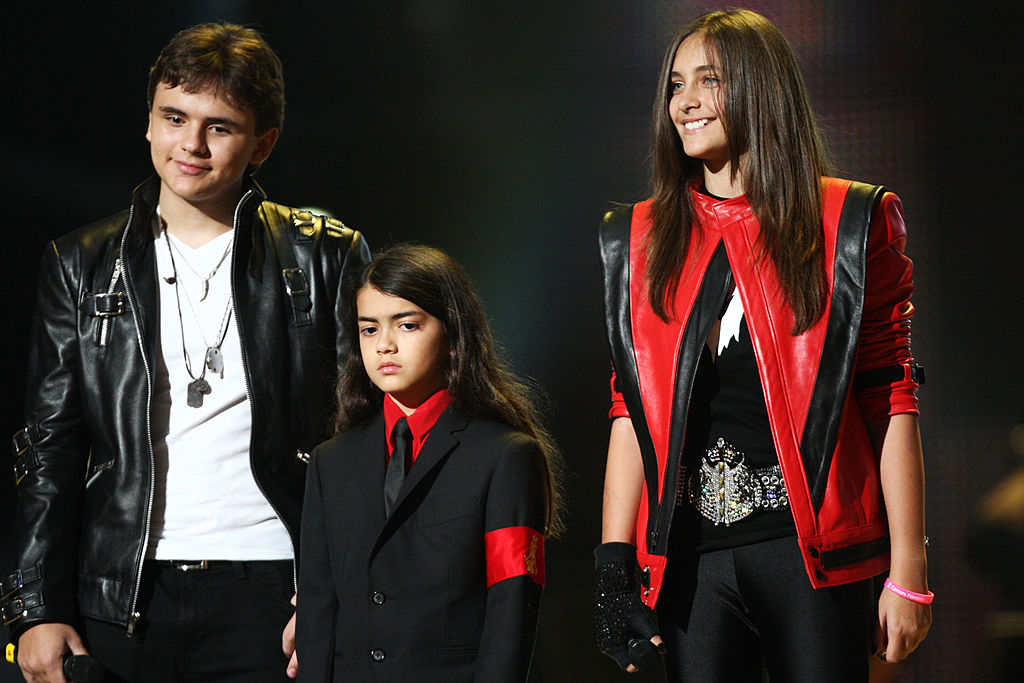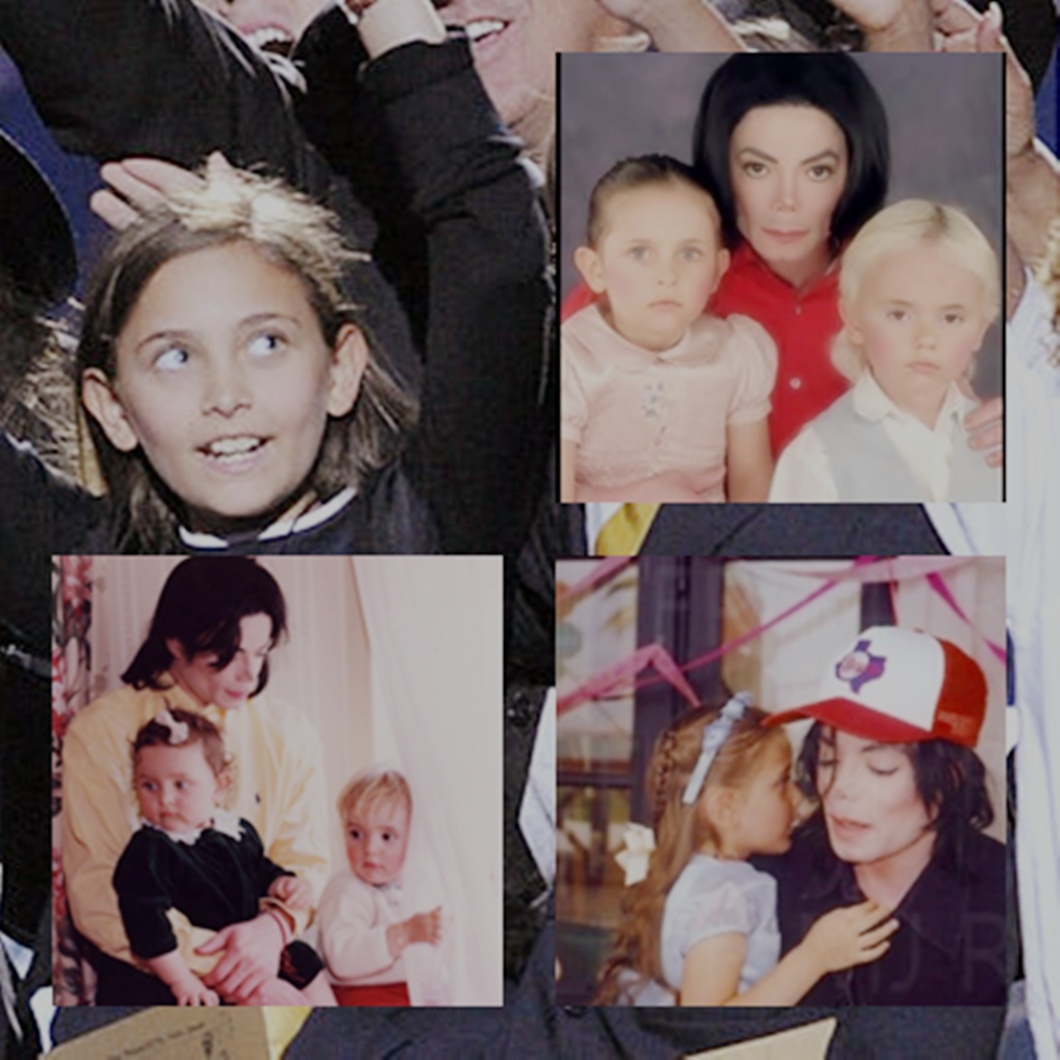The distinct appearances of Michael Jackson's children have captivated the world, sparking curiosity and debate. While some speculate about the reasons behind their lighter skin tones, the truth lies in a combination of genetics, family dynamics, and the complexities of adoption. This article delves into the science, family background, and cultural significance of their appearances, offering a comprehensive understanding of this intriguing topic.
Michael Jackson's life was a tapestry of extraordinary achievements and challenges, and even after his passing, his legacy continues to inspire and intrigue fans worldwide. Among the many questions surrounding his life, the topic of his children's appearances remains a focal point of interest. To unravel the mystery, we must explore the science of genetics, the intricacies of family decisions, and the profound impact of adoption on multiracial identities.
This article aims to provide a thorough examination of why Michael Jackson's children appear white, supported by scientific insights, family details, and credible research. By exploring the complexities of genetics, adoption, and the challenges faced by multiracial families, we hope to foster a deeper understanding and appreciation of diversity in its many forms.
Read also:Movierulz Com 2024 Telugu Your Ultimate Guide To Telugu Movies
Table of Contents
- Michael Jackson's Biography
- Family Background and Background of the Children
- Genetics: The Science Behind Skin Color
- Adoption and Multiracial Families
- Profile of Michael Jackson's Children
- Public Perception and Media Influence
- Challenges Faced by Multiracial Families
- Parental Choices and Raising Multiracial Children
- Scientific Research on Skin Color Genetics
- Conclusion and Final Thoughts
A Closer Look at Michael Jackson's Life
Michael Jackson, born on August 29, 1958, in Gary, Indiana, was a global phenomenon whose contributions to music, dance, and philanthropy left an indelible mark on the world. Known as the "King of Pop," Jackson's career spanned decades, during which he produced timeless hits such as "Thriller," "Billie Jean," and "Beat It." Beyond his musical genius, Jackson was a passionate advocate for children's rights and social justice, using his platform to address critical issues affecting humanity.
Despite his immense fame, Jackson maintained a private family life, which added to the mystique surrounding his personal relationships and children. His life was not without controversy, but his enduring legacy as a cultural icon remains unparalleled. Below is a concise overview of Michael Jackson's personal life:
Personal Details
| Full Name | Michael Joseph Jackson |
|---|---|
| Date of Birth | August 29, 1958 |
| Place of Birth | Gary, Indiana, USA |
| Occupation | Singer, Songwriter, Dancer |
| Spouse | Debbie Rowe (1996–1999) |
Exploring the Background of Michael Jackson's Children
Michael Jackson's children—Prince Michael Jackson I, Paris Michael Katherine Jackson, and Prince Michael Jackson II (nicknamed "Blanket")—represent a diverse blend of backgrounds and experiences. Prince Michael I and Paris are biological children from Jackson's marriage to Debbie Rowe, while Blanket's origins remain a private matter, believed to involve surrogacy or adoption. This diversity in their backgrounds has contributed to the public's fascination with their appearances.
Adoption and Mixed Heritage
While Prince Michael I and Paris share a biological connection with Michael Jackson, their lighter skin tones can be attributed to genetic factors influenced by both parents. Blanket, on the other hand, is thought to have been conceived through alternative means, further enriching the family's multicultural tapestry. Understanding the dynamics of Michael Jackson's family requires recognizing the deliberate choices made by him and Debbie Rowe regarding their children's upbringing and identities.
Unveiling the Science of Skin Color
One of the primary reasons Michael Jackson's children appear white lies in the fascinating field of genetics. Skin color is determined by a complex interplay of multiple genes, with melanin production playing a central role. Variations in these genes can result in a wide range of skin tones, even within the same family. For instance, the Melanocortin 1 Receptor (MC1R) gene regulates melanin production, while mutations in the OCA2 gene can lead to lighter skin tones. Additionally, the TYR gene, associated with albinism, affects pigment production.
Even when one parent has darker skin, their offspring can inherit lighter skin tones depending on the genetic makeup of both parents. In Michael Jackson's case, Debbie Rowe's lighter complexion significantly influenced the children's appearances. This highlights the intricate nature of inheritance and the unpredictable outcomes of genetic combinations.
Read also:Vegamoviesrs Your Ultimate Destination For Movie Entertainment
How Genetics Shapes Children's Appearances
Genetics plays a pivotal role in shaping the physical characteristics of children, including skin color. By examining the genetic contributions of both parents, we can better understand why Michael Jackson's children exhibit lighter skin tones. This scientific perspective dispels misconceptions and underscores the importance of embracing diversity in all its forms.
The Role of Adoption in Building Diverse Families
Adoption has been a transformative force in many families, including that of Michael Jackson. By choosing to adopt or use surrogacy, parents can create families that defy traditional racial and ethnic boundaries. This decision not only enriches the lives of the children involved but also challenges societal norms and fosters greater inclusivity.
Challenges and Opportunities for Multiracial Families
Multiracial families often encounter societal scrutiny and misjudgments based on appearances. However, they also present unique opportunities for cultural exchange and mutual understanding. Michael Jackson's children exemplify the complexities and strengths of such families, serving as a testament to the power of love and acceptance across diverse backgrounds.
A Closer Look at Michael Jackson's Children
Each of Michael Jackson's children has carved out their own path, contributing to the family's legacy in distinct ways. Below is a detailed profile of each child:
Prince Michael Jackson I
Born on February 13, 1997, Prince is the eldest of Michael Jackson's children. Following in his father's footsteps, he has pursued a career in entertainment, showcasing his artistic talents and passion for music.
Paris Michael Katherine Jackson
Born on April 3, 1998, Paris is a multifaceted individual who has made a name for herself as a singer, actress, and model. She has openly shared her experiences growing up in a multiracial family, offering valuable insights into the challenges and triumphs of embracing diverse identities.
Prince Michael Jackson II (Blanket)
Born on February 21, 2002, Blanket gained widespread attention due to an incident involving a paparazzo. Despite the media spotlight, he has maintained a relatively private life compared to his siblings, focusing on his personal development and well-being.
The Influence of Media on Public Perception
The media has played a significant role in shaping public perceptions of Michael Jackson's children, often sensationalizing stories and speculations. These narratives can overshadow the realities of their lives, creating misunderstandings and misconceptions. It is crucial to approach these stories with critical thinking and seek accurate, well-researched information.
Empowering Multiracial Families Through Media
Responsible journalism and education about diversity can empower multiracial families by promoting understanding and acceptance. By highlighting the strengths and challenges of such families, the media can foster a more inclusive and compassionate society.
Navigating Challenges in Multiracial Families
Multiracial families face a variety of challenges, including racial identity issues, societal biases, and cultural expectations. These obstacles require open communication, support systems, and a commitment to celebrating diverse backgrounds. By addressing these challenges head-on, families can build resilience and foster a positive sense of identity in their children.
Strategies for Building Resilience
Education, community involvement, and the celebration of diverse traditions are essential components of building resilience in multiracial families. Parents play a vital role in creating an environment where their children feel accepted, valued, and empowered to embrace their unique identities.
Raising Multiracial Children: A Parent's Perspective
Raising multiracial children involves making conscious decisions about cultural exposure, education, and social interactions. Parents must ensure that their children feel confident in their identities and equipped to navigate a world that often judges based on appearances. Encouraging open discussions about race and identity, exposing children to diverse cultures, and providing access to support networks are key strategies for success.
Key Strategies for Success
- Promote open and honest conversations about race and identity.
- Expose children to a wide range of cultural traditions and experiences.
- Provide access to resources and support networks that celebrate diversity.
Exploring Recent Advances in Skin Color Genetics
Recent scientific research has deepened our understanding of the genetics behind skin color diversity. Studies have identified numerous genes involved in pigmentation, shedding light on why individuals within the same family may exhibit different skin tones. For example, a groundbreaking study published in the journal Nature revealed that genetic variations contribute significantly to skin color diversity, helping to explain phenomena like the appearances of Michael Jackson's children.
Key Findings in Skin Color Genetics
These findings underscore the complexity of skin color genetics and highlight the importance of embracing diversity in all its forms. By understanding the science behind skin color, we can move beyond superficial judgments and foster a more inclusive and compassionate society.
Final Thoughts and Reflections
The appearances of Michael Jackson's children reflect the intricate interplay of genetics, family choices, and the complexities of adoption. By exploring these factors, we can dispel myths and promote empathy toward multiracial families. Embracing diversity and educating ourselves about its many dimensions is essential for creating a more inclusive and harmonious world.
We invite readers to share this article, leave thoughtful comments, and explore related topics on our website. Together, let us celebrate the beauty of diversity and work toward a future where all individuals are valued and respected for who they are.


